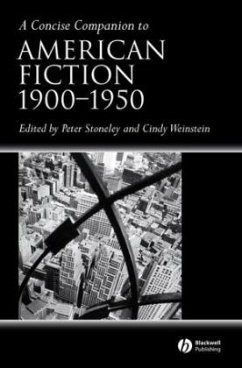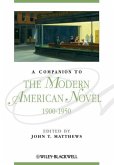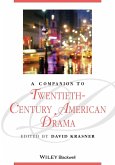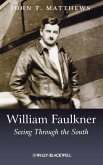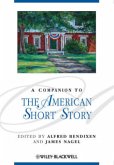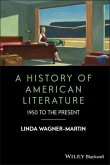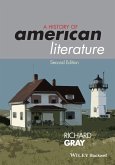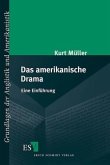An authoritative guide to American literature, this Companion examines the experimental forms, socio-cultural changes, literary movements, and major authors of the early 20th century. This Companion provides authoritative and wide-ranging guidance on early twentieth-century American fiction.
This Concise Companion offers an authoritative overview of American fiction from 1900-1950 focusing on the literature that developed out of the social, cultural, and political changes, which occurred in the first part of the 20th century. With careful reference to key authors and their works, newly-commissioned chapters examine the period's formative events, such as the Depression and the two World Wars, and their representation in literature. In addition, essays also analyze the multiple and paraadoxical self-descriptions that have been taken to define modernism, such as the 'rise of proletarian literature' and the 'high modernist' novel
Looking at issues of race, language, cosmopolitanism, and the First and Second World Wars, this volume introduces the contextual information and strategic knowledge that students need to formulate their own readings of classic American fiction. Authors such as Faulkner, Fitzgerald, and Hemingway, who have defined our understanding of modernism for so long, are reread in relation to key texts of the period by Richard Wright, Charles Chesnutt, Zora Neale Hurston, and Anzia Yezierska. This Companion examines the original context of these authors' works and looks at its current reception to uncover how 20th-century literature is being reinterpreted in the new millennium.
Hinweis: Dieser Artikel kann nur an eine deutsche Lieferadresse ausgeliefert werden.
This Concise Companion offers an authoritative overview of American fiction from 1900-1950 focusing on the literature that developed out of the social, cultural, and political changes, which occurred in the first part of the 20th century. With careful reference to key authors and their works, newly-commissioned chapters examine the period's formative events, such as the Depression and the two World Wars, and their representation in literature. In addition, essays also analyze the multiple and paraadoxical self-descriptions that have been taken to define modernism, such as the 'rise of proletarian literature' and the 'high modernist' novel
Looking at issues of race, language, cosmopolitanism, and the First and Second World Wars, this volume introduces the contextual information and strategic knowledge that students need to formulate their own readings of classic American fiction. Authors such as Faulkner, Fitzgerald, and Hemingway, who have defined our understanding of modernism for so long, are reread in relation to key texts of the period by Richard Wright, Charles Chesnutt, Zora Neale Hurston, and Anzia Yezierska. This Companion examines the original context of these authors' works and looks at its current reception to uncover how 20th-century literature is being reinterpreted in the new millennium.
Hinweis: Dieser Artikel kann nur an eine deutsche Lieferadresse ausgeliefert werden.

